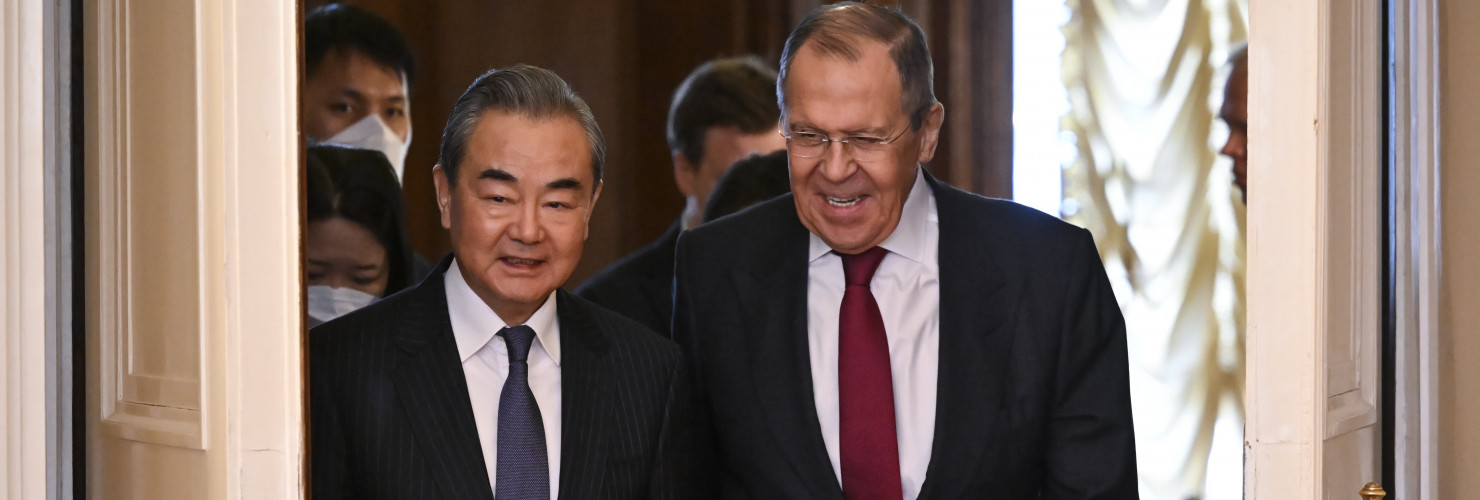

The peace plan that wasn’t
Europe was too credulous in hoping China would adopt a more constructive role in ending Russia’s war on Ukraine, says Helena Legarda, Lead Analyst at MERICS. Beijing is not neutral enough to do so.
China’s recent “peace plan” for Ukraine has dashed the hopes of many in the international community. After China’s top diplomat, Wang Yi, announced at the Munich Security Conference that Beijing was going to publish a proposal on February 24, many observers read this as a sign that China might finally be willing to play a more constructive role in ending Russia’s war on Ukraine.
But notions of a fully-fledged peace plan missed the mark from the get-go. Wang and other Chinese officials billed their upcoming publication as a paper that would outline China’s position on the political settlement of the Ukraine crisis – it is a crisis, not a war, in Chinese discourse – not as a peace plan. They were attempting to manage expectations by very clearly describing what to expect.
The paper that was subsequently released was indeed a position paper – and really nothing more. It reiterates 12 of China’s longstanding points and positions on the war. It calls for the end of hostilities, the reduction of nuclear risks and the resumption of talks between the two countries. But the document has nothing to say about what concrete steps could make any of that happen.
Nevertheless, Beijing couldn’t resist sprinkling some criticism of the US, NATO and to a lesser extent Europe throughout the paper. Although only obliquely, all three are called out for being trapped in a Cold War mentality that is said to have led some countries into “pursuing their own security at the cost of others’ security”, and for imposing “unilateral” sanctions on Russia that are only worsening the crisis.
This reflects Beijing’s established position: the US and NATO triggered the conflict and are benefitting from its continuation, and the security concerns, sovereignty and territorial integrity of all parties must be respected. “All parties” is a clear signal that Russia’s territorial integrity must be respected, not just Ukraine’s, that not only Russia has to cease hostilities, but Ukraine must stop fighting as well.
Beijing chose to stick to its position and not play a more constructive role – as was to be expected.
China’s approach to mediation is focused on high-profile diplomatic gestures
First, China’s approach to mediation is focused on high-profile diplomatic gestures with little specific follow up. This lets Beijing present itself as a responsible global power, while evading responsibility if efforts fail. Chinese “peace plans” are nothing new – they were tabled for the Israel-Palestine conflict, the Middle East more broadly and the civil war in Syria, and all of them were as vague.
Second, a country can only mediate if it is accepted as an honest broker by all parties involved. But Beijing’s “pro-Russian neutrality” has proven not so neutral over the last 12 months. Wang’s visit to Moscow this week is likely soon to be followed by a trip by Xi Jinping. There have been 13 high-level exchanges between Chinese and Russian officials since the war started. There is also evidence that Chinese firms have been shipping dual-use technology and equipment to sanctioned Russian defense companies.
The difference in number of interactions with Ukraine is remarkable. There has been no direct contact between Xi Jinping and Ukrainian President Volodymyr Zelensky since the invasion started and only three engagements between Wang and Ukrainian Foreign Minister Dmytro Kuleba. It is likely China at least discussed its paper before it was released with Russia, but not with Ukraine.
The document allows Beijing to counter criticism that it is standing by
So, if the goal is not to mediate in a peace process, what is the point of this document? It is a diplomatic tool for the Chinese leadership to pursue its own strategic interests. It allows Beijing to counter criticism that it is standing by as the war rages on in Ukraine. By repeating Moscow’s positions, it provides diplomatic cover for Russia and protects the China-Russia relationship.
At the same time, it tries to appeal to European leaders by portraying China as constructive and willing to engage and so might drive a wedge between Europe and Washington. And it allows Beijing to claim the moral high ground in its coalition-building efforts in the Global South. It can present itself as a force for peace and leverage feelings of dissatisfaction with the US and other Western countries.
The bottom line is that Europe should not expect China to play a more constructive role in bringing an end to the war in Ukraine at this point. Going by this document, Beijing is in no way neutral and has no interest in getting directly involved in – much less driving – a peace process of any kind at this point.
A German version of this article was published by “Der Tagesspiegel” on February 24, 2023.

